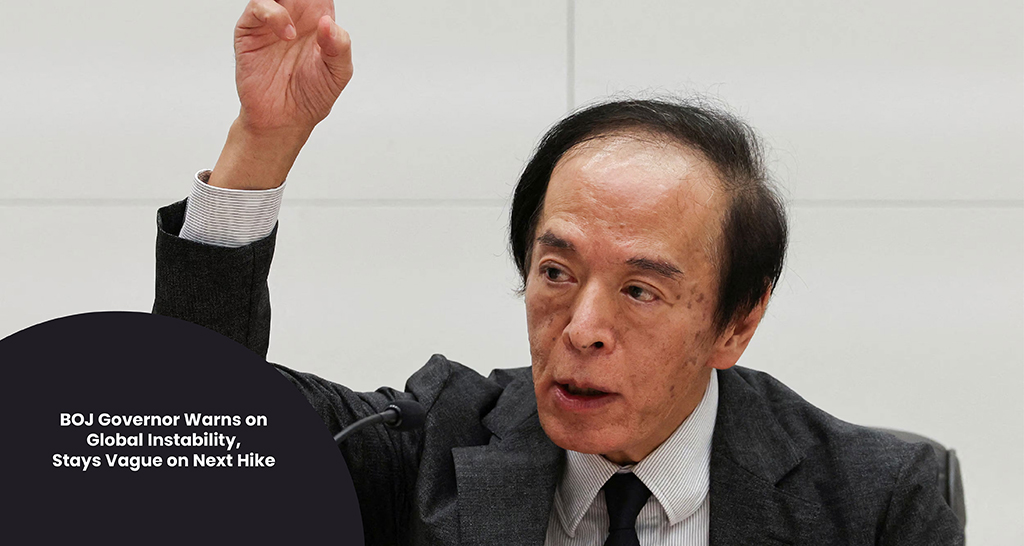Bank of Japan (BOJ) Governor Kazuo Ueda has warned that increasing global uncertainties might make it trickier for the country to normalize its monetary policy. This cautious approach leaves the markets in a bit of a fog regarding when the next interest rate hike might happen.
During a recent policy forum, Ueda pointed out that Japan’s economy is still showing some resilience, with moderate growth and steady wage increases helping to boost domestic demand. However, he cautioned that various global factors like the slowing momentum in the United States, ongoing struggles in China’s property market, and rising geopolitical tensions could put a damper on Japan’s delicate recovery.
Ueda pointed out that we are navigating through a world filled with uncertainty, highlighting that Japan’s policy decisions cannot be made without considering what is happening internationally. He stressed that the Bank of Japan will keep a close eye on global growth, currency fluctuations, and inflation trends before deciding on any adjustments to borrowing costs.
The comments come on the heels of the central bank’s unexpected move earlier this year, when it raised interest rates for the first time in nearly twenty years, marking the end of a long stretch of negative rates. This decision highlighted a growing confidence in Japan’s economic resilience, but since then, policymakers have been treading carefully, mindful of the fact that the recovery is still susceptible to outside pressures.
Investors have been placing their bets on another rate hike in the upcoming months, as inflation continues to hover above the Bank of Japan’s 2 percent target. This situation is partly driven by rising import costs and ongoing wage negotiations. However, Ueda’s recent remarks indicate that the central bank is not in a hurry to act. Policymakers are keen to avoid any premature tightening that might dampen demand.
The market reacted right away, with the yen making a sharp turn against the dollar as traders adjusted their expectations. Japanese government bond yields also dipped a bit, hinting that the Bank of Japan might take its time before making another move. Analysts suggest that Ueda’s vague statements are part of a careful strategy to keep the markets adaptable and to prevent any rigid expectations from forming.
“One Tokyo-based economist pointed out that by highlighting risks without locking in a specific timeline, the BOJ is keeping its options open. They want to have the flexibility to respond based on how the global situation unfolds.”
Domestic conditions in Japan feel like a tightrope walk. On one side, rising wages and increased corporate investment are sparking some optimism that the country might finally break free from years of deflation. On the flip side, a weak yen is driving up import costs, putting pressure on households and small businesses alike. While inflation is higher than before, it has not really picked up the kind of widespread, demand-driven energy that we have seen in other major economies.
Ueda recognized the various influences at play, emphasizing that the BOJ’s main objective is to maintain a stable and sustainable inflation trajectory. He highlighted that any changes in policy would be gradual and communicated clearly, aiming to support economic recovery while avoiding any turbulence in the financial markets.
Right now, it seems like the central bank is taking a careful approach, leaving investors in suspense about when and how much the next rate hike will be. With global challenges growing stronger, the BOJ’s upcoming decisions are set to be scrutinized more than ever by markets around the world.
